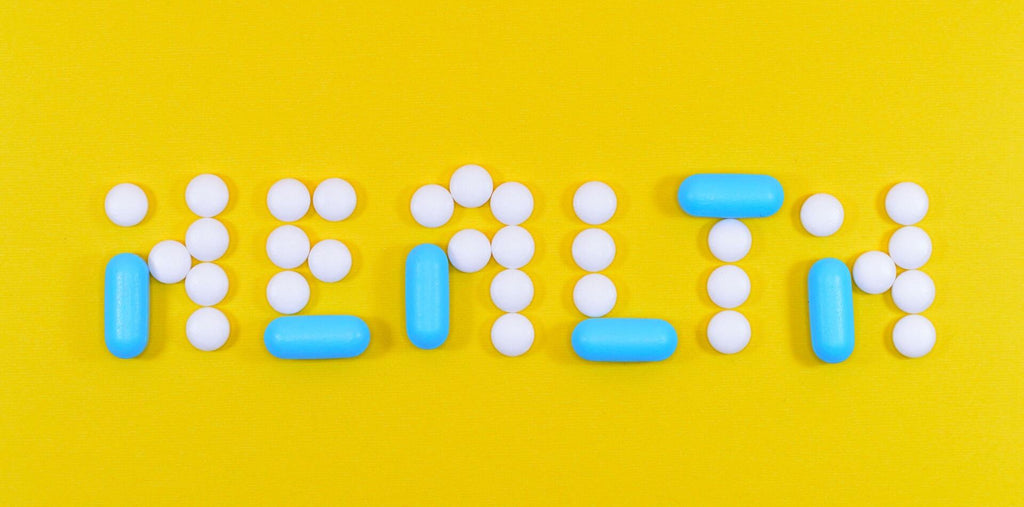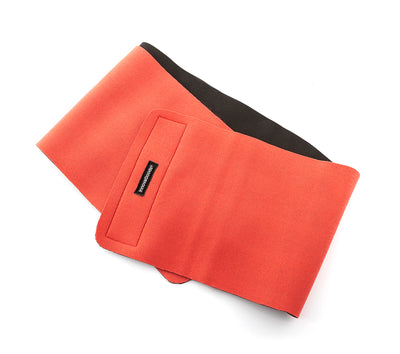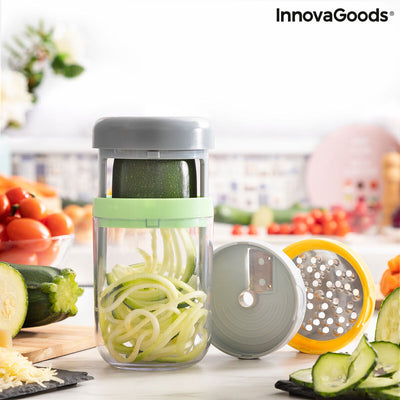Iron Supplements: a Solution to Boost Your Health and Productivity
We tend to look for a reason for our tiredness in a busy schedule. Still, often it lies in an unhealthy diet or micronutrient deficiencies. They're among the top reasons you may feel weak, tired, and sleepy. So you should carefully watch how many nutrients your body gets daily. But what if you don't have time for that? Then supplements come to the savior! Today we're going to discover everything about the essential mineral & supplement that keeps you energized and healthy - iron.
Iron is one of the essential nutrients you need to consume. Still, it can be challenging to maintain a healthy level of iron when you don't have the time to prepare and cook nutritious meals. That's why most people suffering from iron deficiency should opt for supplements - to ensure they’re getting enough without changing their habits. These supplements could then help you accomplish your goal of leading a healthy lifestyle despite the constraints you might face because of your busy schedule. Now let’s discover the connection between iron levels & your energy, find out what are the top iron-rich foods, and how you can make the most out of iron supplements!
What is iron, and how does it act within your body?
Primarily, iron is a vital mineral that helps your body shield against the effects of stress and aging. When you're low on iron, your body lacks the oxygen-carrying capacity, which leads to poor metabolic function or increased cellular damage. Let's examine some of its essential functions to comprehend its role within the body.

Iron has two critical functions in your body:
- It’s crucial for building red blood cells and releasing oxygen around your body.
- Red blood cells release hemoglobin into the bloodstream with anions dissolved in it.
These anions help carry out excess carbon dioxide (produced in tissue respiration) before building up in the bloodstream. The result is a non-acidic environment for efficient cell metabolism. We'll discover how iron affects your health and productivity.
Benefits of iron supplements for your body & mind
There are many perks when we're talking about supplementing iron. This essential mineral can support your well-being, keep your brain productive, and allow you to stay agile. Let's look closer at the perks it may bring to your life.
Iron can affect your energy levels and reduce tiredness
Iron is a mineral that helps produce red blood cells, carrying oxygen to body tissues. It also helps in energy production and may boost metabolism. However, most people are unaware of its benefits. They are often hesitant about taking iron supplements due to a lack of information. A recent study revealed that supplementing with iron can help you avoid exhaustion, keep you active, and increase your energy levels.
Meanwhile, excessive bodily iron can result in fatigue and exhaustion - because iron is found primarily in hemoglobin which transports oxygen. A low level of iron decreases the feeling of fatigue or tiredness. However, the opposite can happen when there is too little iron in your body. Iron-rich drinks can boost your energy levels for a short period, but after your system gets used to the high dose of nutrients, you will be tired again as soon as it wears off. So it's best to eat iron-rich foods and supplements for long-term energy improvement.

Iron may improve your brain productivity & cognitive performance
Are you ready to get the most out of your every work hour? Iron has always been a vital part of the human body that helps support brain function and even makes it more agile. Iron supplementation can improve your brain ability in many ways, including enhanced memory function and healthy blood flow regulation within various brain parts. It's a well-researched mineral that has shown promise in improving cognition, attention span, motivation, and creativity.
Scientists discuss iron in numerous ways, mainly in terms of physical health. It generally helps deal with highly demanding tasks like problem-solving or thought planning - skills critical for modern life. Iron also boosts cognitive performance as its consumers feel more focused and alert when supplementing their bodies with this mineral. However, working memory or neurotrophin can also be improved with iron supplementation.
Iron helps support your immune protection
Iron is vital to your immune system since it enables you to battle diseases and fights trouble caused by toxins in the body. Supporting your body's iron levels on a decent level is a meaningful way to protect your immunity from a variety of different diseases. However, sustained effects require long-term commitments.
Besides, the World Health Organization recognizes iron as an essential factor in general physical, mental and emotional health. The science behind this mineral is that it triggers intravenous iron release fibers that hold blood vessels wide open. Then it increases hemoglobin as it enters the bloodstream in response to inflammation. So iron supplements ensure your body stays fit, healthy, and safe.

Iron may level up your bone and skin health
According to the Tufts University Health & Nutrition letter on the benefits of iron, it helps produce collagen, an integral component of bone and skin. Collagen provides your hair, bone, teeth, and tendons with structure, support, and strength. It is one of the significant proteins which acts as a structural material for most parts of your body. Iron also supplies these types of connective tissues with oxygen and necessary nutrients.
What matters is that you cannot create collagen without iron as a catalyst. So people with inadequate iron content in their bodies are at risk of developing a range of medical and functional disabilities. Studies show that most people with a lack of iron in their diets can develop the following:
1. Osteoporosis - is a disease that leads to increased bone injuries.
2. Skin issues - which turn out to be primarily responsible for worsening acne and dermatitis.
Despite your age and diet preferences, there is a convenient solution available to help ensure strong bones and healthy skin: iron supplements! They are essential in supporting your body's ability to produce collagen, supporting connective tissue alongside calcium.
Iron could help you sleep better & reduce sleep disturbance
Long nights, sleepless days, yawning opening sentences, yawning ending sentences, an endless supply of computer screens - are you familiar with them? All these describe our sleeping routines that come under pressure from work & life commitments. However, a busy schedule isn't the only reason for your poor sleep routine. Iron deficiency is another marker for getting insomnia and poor-quality rest.
If you're struggling to become a sound sleeper without medication, you should consider taking a daily dose of iron! Failing to eat fresh, nutrient-dense foods and drink plenty of water can cause anemia, which is commonly associated with symptoms of stress or depression. Poor sleep is also a feature of people with anemia.

Iron supplements may promote better sleep by increasing red blood cell production and stimulating the brain to produce melatonin at night. It's a natural sedative hormone that helps prepare your body for a sound and tight sleep. Besides, iron supplements also reduce anemia symptoms, making you less depressed and anxious, and enabling you to fall asleep faster.
Iron contributes to the health of your thyroid gland
If you're worried about your thyroid health, then you should know that iron is essential for its normal functioning. Doctors even recommend iron supplements to help treat hypothyroidism. The thyroid gland in your neck produces an important hormone that helps regulate your metabolism - T3. This hormone comes from T4, which converts into T3 as part of the process in the thyroid cells. Suppose you don't have enough of this mineral in your diet and don't supplement with iron regularly. In that case, you may lack enough iron for optimal thyroid function.
Iron deficiency can lead to an underactive thyroid which can cause a range of bodily symptoms like fatigue, mood swings, weight gain, lack of energy, and weight loss. A study found that supplementing with iron helped balance out these mineral levels in the body, contributing to a healthier thyroid function. So it's clear that iron is an indispensable part of healthy living, be it in foods or supplements. Now let's find out what may happen to your body if you face a constant iron deficiency.
Dangers of not getting enough iron in your diet
Iron deficiency is one of the most common nutritional deficiencies in the world. Over half of the people worldwide suffers from an iron deficiency.

Anemia is a disease due to low hemoglobin levels and red blood cells. At the same time, iron is necessary for the formation and function of these cells. Anemia can occur due to many factors such as insufficient iron in your diet, arduous periods, or pregnancy. Iron deficiency can have a significant impact on your overall health and well-being. The most common symptoms are fatigue, lethargy, and decreased cognitive function. If you haven't been getting enough iron in your diet, you should start taking supplements now.
Other symptoms that may signal about iron deficiency in your body: pale skin weight gain headaches and migraines chest pain brittle nails constant fatigue weakness.
Suppose you face a few of these symptoms simultaneously. In that case, it's time to think about how you may increase your iron intake and get enough of this essential mineral. We created a comprehensive list of the top iron-rich foods and supplements. Read on, and you'll always know what to pick to keep your iron levels high.
The best sources of iron that you can easily add to your diet
Picking iron-rich foods is not easy, but it doesn't need to be as tricky as it sounds. The best way for some people is to take supplements with high levels of iron and avoid eating foods high in iron because it may be time-consuming. However, you may find a balance between iron-rich foods and supplements that will match your lifestyle. Now let's look at the foods and supplements especially rich in this mineral.

Top iron-rich foods
The good news is that you can consume enough iron from various healthy, whole food sources. But it's important to know which are the highest-quality foods, rich in iron.
1. Chicken or beef liver
The liver is one of the best food sources rich in iron. It can provide you with more than 80% of your daily iron requirement. While the recommended daily dose of iron is 8.7mg for men, and 14.8 mg for women, one 75g serving of liver delivers up to 13 mg of iron! Besides, the liver is also a great natural source of folate, vitamin A, B, and copper. So try to cook it with cream and serve it with different garnishes - you'll love this iron-rich meal!
2. Spinach
Spinach is also among the top food sources of iron because of its incredible concentration per cup. One cup of cooked spinach has 6,5 mg of this mineral, making it a perfect addition to a healthy diet. Plus, spinach bursts with vitamin A, C, folate, and B-vitamins, essential for your energy and immune health. So why don't you try it as a garnish for your favorite meat or addition to a morning omelet?
3. Legumes
Legumes are a source of highly absorbing and easily-available iron that you can add to your diet anytime! Boiled and served alone or added to your stir-fry or soup, they will supply your body with enough iron in no time. For example, 1 cup of boiled lentils can provide 6,6 mg of iron. Meanwhile, a serving of lima, navy, or kidney beans can give you a 25% iron daily value.

Top iron-rich supplements
1. Iron + vitamin C
Well, you may think that iron alone would be enough to get as a supplement to meet your daily needs. But consuming a supplement that combines this mineral with vitamin C would be way more intelligent. It improves iron absorption and creates a necessary acidity in your stomach for better dissolving.
2. Spirulina
Aside from being an astronaut food, spirulina is a total crush on iron content. This perky alga is a champion - it has 58 times more iron than spinach. So it'd be an ideal addition to your healthy diet - you should try it! One hundred grams of it contains 28 mg of iron, which comprises 158% of your daily need.
3. Ferrous sulfate
Ferrous sulfate is a natural compound and a dominantly utilized food mineral rich in iron. Beans and foods like broccoli contain ferrous sulfate, but supplements are the best way to get enough of it. Ferrous sulfate has better absorption in your body than regular iron supplements, so it's a common treatment for anemia and iron deficiency.
Recources:
- Iron Metabolism: Interactions with Energy and Carbohydrate Availability (2020)
- Levels of iron in brain linked to better cognitive function (2020)
- Highlights of Tufts University nutrition research: January 2004
- Iron deficiency and sleep – A scoping review (2020)
- Effect of iron supplementation on thyroid hormone levels and resting metabolic rate in two college female athletes: a case study (2000)
- Iron in Foods (2022)
- Iron in Spinach (2022)
- Do Beans Have Iron? (2011)








